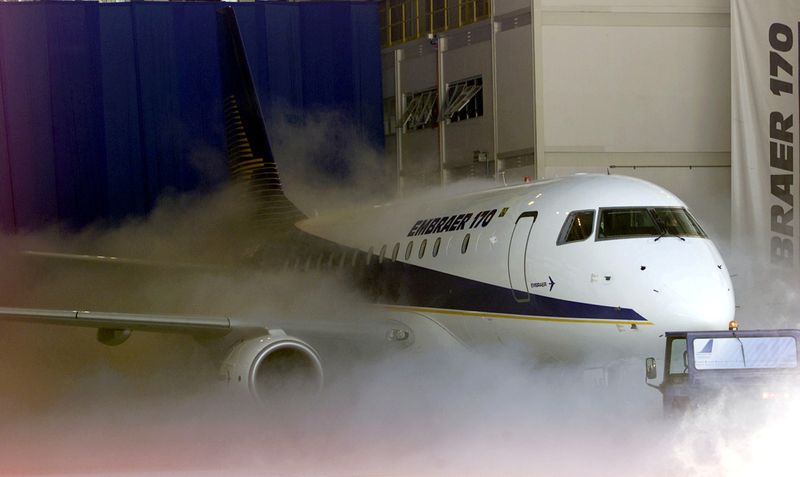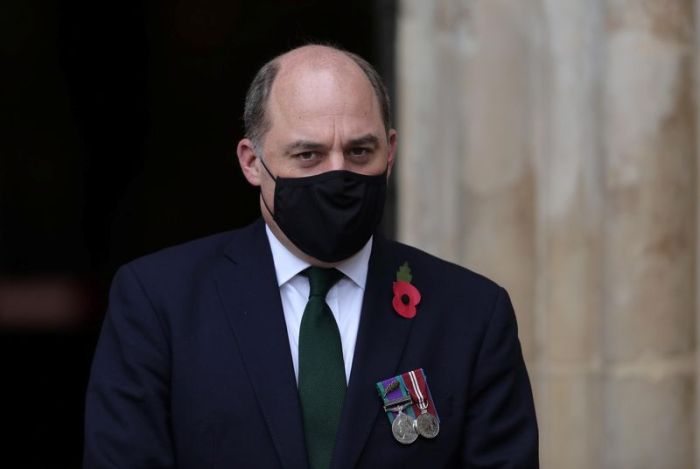By Carolina Mandl and Tracy Rucinski
SAO PAULO (Reuters) -Brazilian planemaker Embraer SA posted its first quarterly recurring profit in more than three years on Friday and took another step toward the development of the first brand-new Western turboprop aircraft in decades.
Turboprops are said to be more efficient on shorter trips and are particularly attractive at a time of higher oil prices.
Embraer’s new concept for the turboprop would feature engines mounted at the rear of the aircraft, an unusual change from the more conventional wing-mounted engines, the company’s chief commercial officer, Arjan Meijer, said on Twitter.
The company has been searching for a partner to develop a new turboprop that would compete with European manufacturer ATR, which dominates the market with a long-established model of roughly 50 to 70 seats.
Embraer had previously sought to develop its turboprop under a partnership with Boeing that fell through early in the coronavirus pandemic.
Meijer did not say who would supply the aircraft’s engines. Pratt and Whitney currently supplies all turboprop engines, but GE Aviation is developing a competing model.
Embraer reported second-quarter net income of 212.8 million reais ($40.5 million), its first recurring profit since the first quarter of 2018, driven by a partial recovery in travel.
A year earlier it posted a loss of 1.071 billion reais and was scrambling to restructure operations to contend with the pandemic and the failed $4 billion deal with Boeing Co.
The second quarter of last year was particularly brutal for planemakers, and the vast majority of Embraer’s commercial aircraft revenue vanished as airlines deferred orders.
But on Friday Embraer suggested it may be turning the page.
Chief Financial Officer Antonio Carlos Garcia said on a call with analysts that Embraer is poised to post a stronger performance next year, and he is “very optimistic” about finding a partner for the turboprop.
Embraer, which had suspended guidance for its operations when the pandemic began, said it sees commercial deliveries at between 45 and 50 planes and executive aviation deliveries at 90 to 95.
Revenue, which more than doubled in the second quarter to $5.922 billion, is likely to be between $4 billion and $4.5 billion, with an adjusted EBITDA margin of 8.5% to 9.5%. Free cash flow should be at breakeven, with a cash burn of up to $150 million seen this year.
($1 = 5.2536 reais)
(Reporting by Marcelo Rochabrun and Carolina Mandl and Tracy RucinskiAdditional reporting by Paula LaierEditing by Jason Neely, David Holmes and Leslie Adler)
























